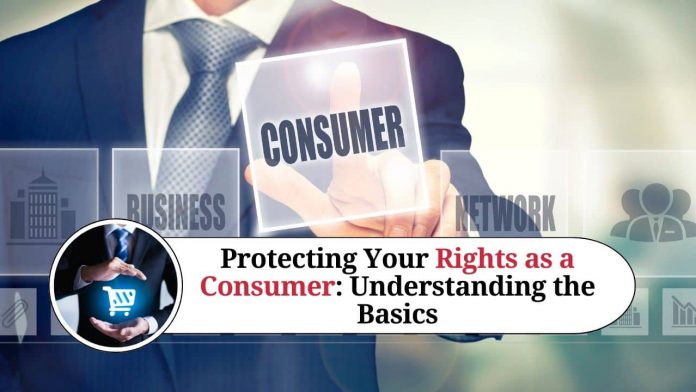As a consumer, you have certain rights that are protected by law. These rights ensure that you receive fair treatment and are not taken advantage of by businesses. Understanding your rights as a consumer can help you make informed decisions and hold businesses accountable when they do not meet their obligations.
The Right to Information
The first right of a consumer is the right to be informed. This means that businesses must provide clear and accurate information about their products or services. This includes information on the price, quality, safety, and ingredients of a product. Consumers have the right to know what they are buying and should not be misled by false advertising.
The Right to Safety
The second right of a consumer is the right to safety. This means that businesses must ensure that their products or services are safe for use. Consumers should not have to worry about being injured or harmed by a product they have purchased. Businesses must comply with safety regulations and take all necessary precautions to ensure their products or services are safe.
The Right to Choose
The third right of a consumer is the right to choose. This means that consumers have the right to choose from a range of products and services at competitive prices. Businesses must not engage in anti-competitive practices or restrict consumer choice. This right is essential for ensuring that consumers can make informed decisions and find the best products or services for their needs.
The Right to Redress
The fourth right of a consumer is the right to redress. This means that consumers have the right to seek compensation or a remedy if they have been treated unfairly or have suffered harm. This right is important for holding businesses accountable and ensuring that consumers are not left to suffer the consequences of a business’s wrongdoing.
The Right to Consumer Education
The fifth right of a consumer is the right to consumer education. This means that consumers have the right to access information and resources that can help them make informed decisions. Consumer education can help consumers understand their rights and responsibilities, as well as how to identify and avoid scams or fraudulent practices.
Conclusion:
Consumer rights are essential for ensuring that businesses act ethically and responsibly toward their customers. As a consumer, it is important to understand your rights and to exercise them when necessary. By holding businesses accountable and making informed decisions, you can protect yourself and promote a fair and competitive marketplace. Remember that you have the power to demand fair treatment and to speak up when your rights as a consumer are being violated.
Other Related Blogs: Section 144B Income Tax Act
Frequently Asked Questions
Q:1 What are consumer rights?
A: Consumer rights are the legal and ethical protections afforded to individuals who purchase goods and services from businesses. These rights include the right to information, safety, choice, redress, and consumer education.
Q:2 Why are consumer rights important?
A: Consumer rights are important because they help protect individuals from unfair and unethical business practices. They also ensure that consumers have access to safe and quality products and services, as well as the ability to seek redress when they have been treated unfairly.
Q:3 What is the right to information?
A: The right to information is the consumer’s right to receive clear and accurate information about a product or service, including its price, quality, safety, and ingredients. Businesses are obligated to provide this information to consumers and must not engage in false or misleading advertising.
Q:4 What is the right to safety?
A: The right to safety is the consumer’s right to use products and services that are safe and free from harm. Businesses must ensure that their products or services meet safety regulations and take all necessary precautions to protect consumers from harm.
Q:5 What is the right to choose?
A: The right to choose is the consumer’s right to choose from a range of products and services at competitive prices. Businesses must not engage in anti-competitive practices or restrict consumer choice.
Q:6 What is the right to redress?
A: The right to redress is the consumer’s right to seek compensation or a remedy if they have been treated unfairly or have suffered harm. This right is important for holding businesses accountable and ensuring that consumers are not left to suffer the consequences of a business’s wrongdoing.
Q:7 What is the right to consumer education?
A: The right to consumer education is the consumer’s right to access information and resources that can help them make informed decisions. Consumer education can help consumers understand their rights and responsibilities, as well as how to identify and avoid scams or fraudulent practices.
Q:8 How can consumers exercise their rights?
A: Consumers can exercise their rights by being informed and assertive. They can ask businesses for information about products and services, file complaints when they have been treated unfairly, and seek legal action when necessary. Consumer advocacy organizations can also help consumers exercise their rights and hold businesses accountable.




















